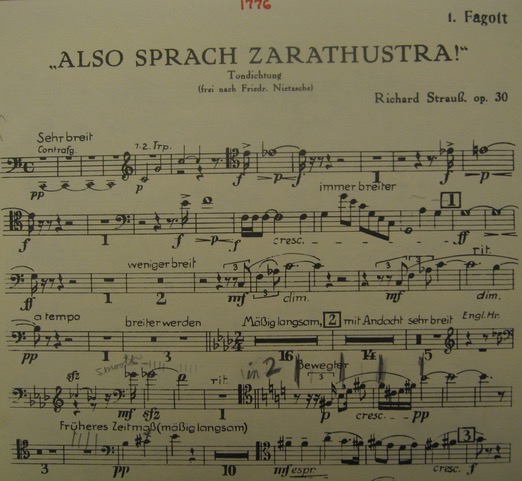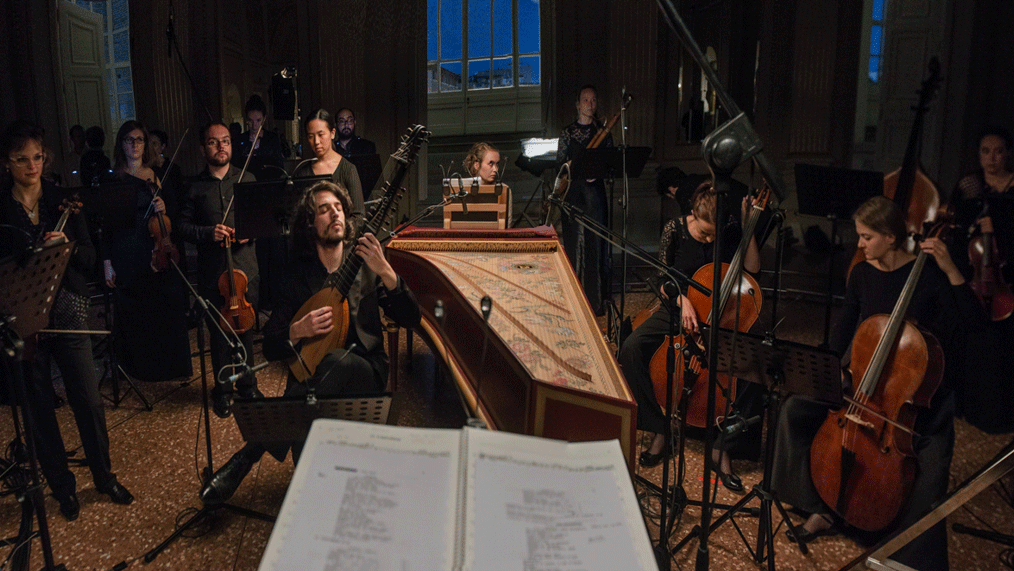Iranians have wondered about the meaning of life and have gazed into the night sky searching for answers like many other people on the planet since time immemorial. The idea that they may be seeds randomly scattered on the face of the earth by invisible and unreachable cosmic forces has never appealed to them. Making sense of their suffering in what it seemed an endless cycle of life and death could’t have anything but a profound significance that they needed to understand.
Either it was purely in their minds that created the gods, ghosts, demons, angels and other celestial beings or indeed they had touched the garment of some invisible entities and felt their presence in their lives. Generation after generation as their nomadic lifestyle took them from one location to another, witnessing the never changing pattern of sunrise and sunset and the seasons they came to unique conclusions about who they were, why they were here and where they were going.
After Zartusht Iranian religious sensibility begins to coalesce, have direction and the abstract cosmic questions find more concrete expressions.
There is no religious figure more important than Zartusht in the ancient Persian history that we know of.
There is no religious figure more important than Zartusht in the ancient Persian history that we know of. He is also the father of religious and social reforms of the Iranian people. Although there is no general consensus about the date or the place of his birth but there is no disagreement about him as a historic person. Myths and legends as well as historical accounts all try to give us a picture of what this man was like. What was the nature of his revelation and the circumstances in which he received them and the extent of his achievements as a prophet and change maker. In Gathas which is attributed to him we get some insights into the depth of his spiritual character: I have kept your laws of righteousness and Good Mind. Wise Lord, teach me to speak the thoughts of Your Mind.
For Zartusht the material world and all that is beautiful and beneficial is created by Ahura Mazda so all that is harmful to them had to be created by another force. The language of Gathas at times is not for the fainthearted. There was no middle ground between those who did not heed what Zartusht commanded: Destroy violence, check rage, you who wish to acquire Good Mind through righteousness. The society of his age was undoubtedly violent. There was those who wanted to live a sedentary life and those who harmed them by stealing the fruit of their labour and refused to live in a cohesive society. There was no justice. Religion was useless in dealing with the injustices prevalent at the time. Had gods no concerns or interest in the mortal humans? Zartusht had the capacity to see a life that was different to the one people had. He felt compelled to communicate the new vision to his people. And it was this message that he believed came to him through a divine revelation.
Zartusht is the only person in history according to legends who laughed after he was born. What was he laughing about? He had the most dangerous career as a prophet and social reformer. If anything, he should have looked terrified and screaming, symbolic of what lay ahead. But perhaps the phenomenon of a laugh on the countenance of a baby just out of the womb does not belong to the infant alone but also to a higher being who looked upon Zartusht with favour, rejoicing in the fact that he would eventually overcome the dark forces of Angra Mainyu.
Zartusht paved the way for spiritual certainty and told people that they belonged first and foremost to the heavens with the Wise Lord, the Creator. He gave people a sense of mission. He strengthened people to settle and become agriculturist and expand. He made them look far beyond their local boundaries. The creed of Zartusht which became known as Zoroastrianism gradually would play a pivotal role in the day to day lives of ordinary people. As they came in contact with others they made a lasting impact on the non Indo-Europeans civilisation and their religious beliefs and practices.
Zartusht who belonged to the privileged priestly cast knew the religion of his time only too well. Like St Paul who was the keeper of the old covenant both men had their own unique supernatural experiences which veered them onto a different spiritual path. Zartusht realised that the repetitiveness of the old rituals and ceremonies and making sacrifices did not go far enough to bring people closer to the truth of creation and their role and purpose in it. The rulers of his region did not like to hear what he was preaching to them. It meant a shift in the balance of power, defrocking powerful priests who insisted in their archaic practices.
His failures to make people listen to him didn’t seem to dishearten him from trying again and again to find an audience who would listen to him and understand his message.
He left his old religion and hometown wandering the countryside with his family. He couldn’t convert anyone from his people or cast. Like other prophets he had no honour in his own country any more for questioning the status quo. Life must have become difficult for him and his wife and children but his righteousness prevented him to continue worshipping the lesser gods that offered no hope for here and now He couldn’t turn his back on what had been revealed to him. He had become a witness to a promise for a better world that no one had seen or heard of. A whole new world to be born and withhold which would emanate the mind with Vohu Manah (Good Purpose). He also knew without power in the unruly world propagation of his message would be fruitless, so he looked for a powerful chieftain or a king who would listen to his new creed. Someone who would understand the meaning of righteousness and would do his utmost to match it with his good deeds. A king who was as fearless as he was when confronted with the evil doers. A king that would reward the believers and banish the marauding tribes.
His failures to make people listen to him didn’t seem to dishearten him from trying again and again to find an audience who would listen to him and understand his message. His persistence was a sign that he had an inner knowing or faith that he would succeed one day. Zartusht was convinced it was not his task that he was trying to accomplish but Ahura Mazda’s and he would assist him and help him triumph at the end.
After meeting the King Vishtaspa and his queen Hutaosa the odds against him suddenly change. Receptive to his message the regal couple use their resources for his great commission. His reforms gradually take roots, unshackling his people from ahriman’s hold on them.
He taught people that creation had a beginning and an end and they are the link in the middle of this grand narrative. They can choose to play an important role and change the course of history by simply exercising their free will at the service of the Wise Lord. The religious genius of Zartusht in teaching people the power to choose and choose for the betterment of themselves and their children and the creation spread like wildfire. Some scholars even believe Zartusht was the turning point in all the religions that learned about his teaching.

In Zartusht’s teachings the environment is also sacred and must be protected from anything that pollutes it. Zartusht received his first revelation at the age of thirty. It was the first day of spring as he went to fetch water from the nearby stream. The water was serene and the air freshest, blossoms out. Everything felt pure and whole. In that pristine surrounding a shining Being reveals itself to him. While the rest of the crowd was at the Nowruz festival celebrating, Zartusht came face to face with a radiant being. He communes with it and his understanding about everything that he was taught to believe and teach others is turned upside down. He had to go back and join others in a world that rapidly must have shrunk in his eyes after what he had just experienced.
An eco-theologian once said, “If there is no spiritually in the earth there is no spiritually in ourselves.” It is a fallacy to believe human spirituality is separated from the natural world. “The religious and cultural traditions we have honoured for millennia all bear witness to our deep desire to find meaning in what we see and feel around us.” Zartusht was the first ecologically minded prophet. He endowed nature with an inherent sacredness that needed our protection. It was not just humans who came under attack by the destructive powers of ahriman but the ecosystem as well, because nature was alive and sustained life and supported the good works of the Wise Lord.
In Jean Philippe Rameau opera, Zoroastre which was performed in 1749, 1756, and later in 1770 it opened the new Paris opera house, Zartusht’s long drawn out battle and triumph at the end is played out in his opera. Zartusht’s victory was not only a victory for his own people but for the whole world. As the story of his life and message began to spread by the translations of Avesta into European languages homage to the first universal prophet in artistic and literary masterpieces slowly appeared.

Zartusht was assassinated as he was performing a ritual at a fire temple in his old age. By then he had fulfilled his mission most splendidly. He had planted the seeds of righteousness which only grew stronger as life progressed. He heralded a new world which offered not just a better existence in a material sense but with a higher moral purpose and aim. He increased the knowledge of monotheism and taught people they have the gift of freewill to choose between good and evil.
Cover photo: Zoroastrian fire temple in Baku






